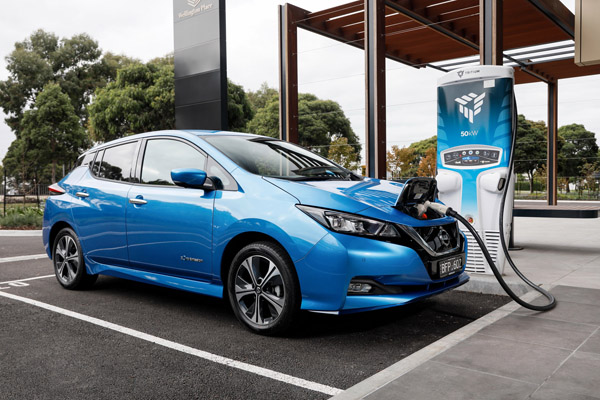
Nissan Leaf
Electric vehicles finally look set to drop in price with Government agreement to cut
importers a tax break.
The scheme will exempt EVs from import tariffs as well as fringe benefits tax, making
the vehicles more affordable.
The Electric Vehicle Council has welcomed the decision as a “landmark moment” for
EV policy in Australia.
Chief executive Behyad Jafari said making new EVs easier to buy will turbocharge
the creation of a strong second-hand market for EVs, which is vital for affordability.
“If the Federal Government combines this bill with new fuel efficiency standards, we
will soon see a market develop in Australian through which everyone will be able to
enjoy the benefits of EVs,” he said.
“By achieving stronger EV uptake, we will significantly lower Australia’s carbon
emissions and reduce our precarious dependence on foreign oil.”
Until now the stumbling block has been the inclusion in the Bill of so-called plug-in
hybrids which the Greens oppose.
These are electrified vehicles with a small battery as well as a petrol engine that can
be charged and used for short distance electric travel, generally about 50km.
But their long-term benefit is questionable, particularly if they are not recharged
frequently to top up the battery. While plug-ins will initially be included in the new
legislation, in a concession they will be phased out by April, 2025.
The so-called “electric car discount” was an election promise by the Albanese.
The FBT exemption will apply to battery-powered electric cars, as well as plug-in
hybrids and hydrogen fuel cell electric cars.
It will make EVs, such as Nissan’s pioneering LEAF up to $2000 cheaper and up to
$9000 less for those employers who run a fleet.
While employees choosing salary sacrifice to buy a car will save up to $4700 a year
on an EV.
The Government will also introduce changes to remove the five per cent import tariff
for eligible electric cars, with the changes to be back-dated to July 1.
Meanwhile, the Climate Council wants the Government to hit car importers where it
hurts by tightening up fuel efficiency standards.
That’s because these standards will limit how much pollution cars can emit before
they are allowed to be imported and sold here.
Companies which fail to adhere to these limits will be fined.
It argues stronger fuel efficiency standards will encourage car makers to import
more, cleaner electric vehicles (EVs).